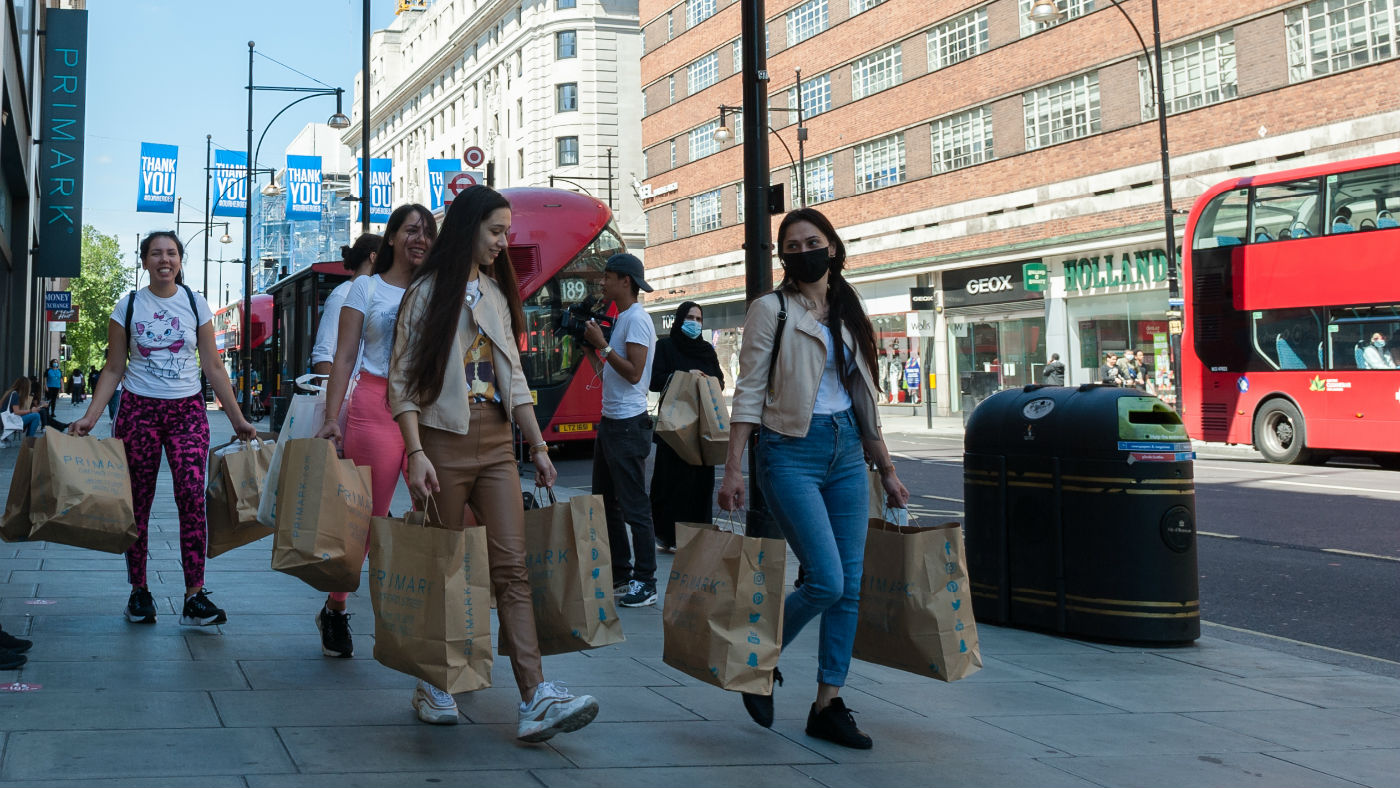Debate on the high street: are UK city centres dead?
Primark forecasting sales of £2bn for the year but industry body says many retail firms are ‘hanging on by thread’

A free daily email with the biggest news stories of the day – and the best features from TheWeek.com
You are now subscribed
Your newsletter sign-up was successful
Latest sales data shows that British shoppers are returning to the high street - but opinion is divided on whether the post-lockdown surge can save struggling retailers.
While some outlets are reporting strong sales growth, industry experts say that empty offices and the steep drop in commuters is having a devastating effect on many shops.
With the ongoing coronavirus crisis triggering the loss of thousands of jobs and millions of pounds of lost revenue, can town and city centres recover from one of the toughest years ever in retail?
The Week
Escape your echo chamber. Get the facts behind the news, plus analysis from multiple perspectives.

Sign up for The Week's Free Newsletters
From our morning news briefing to a weekly Good News Newsletter, get the best of The Week delivered directly to your inbox.
From our morning news briefing to a weekly Good News Newsletter, get the best of The Week delivered directly to your inbox.
Sales hike
Shoppers have returned to the high street “with a vengeance”, The Daily Telegraph reports.
Data from the British Retail Consortium (BRC) shows that sales last month were up by 3.9% year-on-year. August was the “third consecutive month in which sales have been more than 3% higher than in the same period of 2019, and represents the strongest rate of growth since May 2018, once distortions for the timing of Easter are accounted for,” says the newspaper.
Many shoppers have been splashing their cash on new furnishings and appliances, as families and people working from home look to upgrade their properties.
A free daily email with the biggest news stories of the day – and the best features from TheWeek.com
Although clothing sales are “struggling” despite children returning to school, computers and TVs are in high demand, The Telegraph adds.
Major job losses
Newly published figures obtained by the BBC under a freedom of information (FOI) reveal that British employers including retail giants Boots, John Lewis and Marks & Spencer planned a total of 300,000 redundancies in June and July.
In early August, an analysis by the Daily Mail found that at least 22,500 retail workers were facing the chop.
Return to work is ‘too late’
Confederation of British Industry (CBI) director-general Carolyn Fairbairn recently urged the government to help bring the UK’s offices “back to life” in order to prevent commercial centres from becoming “ghost towns”.
However, the BRC is warning that “the slow return of UK workers to their normal place of work will come too late to save hard-pressed city centre stores from going under”, The Guardian reports.
The retailer representative body’s chief executive, Helen Dickinson, says that a change in spending patterns, the rise in online shopping and September rent payments has left many outlets struggling to survive.
“With rents accumulating and the September quarter payment date fast approaching, many retailers are hanging on by a thread,” she said.
“Unless businesses and government can successfully persuade office workers back into city and town centres, some high-street retailers will be unable to afford their fixed costs. Government will need to act fast or September will see more shops close and more job losses realised.”
Primark bucking trend
While many firms are struggling to stay afloat, Primark is proving to be an exception.
After reopening its stores in June, the fashion chain is expecting to rake in £2bn worth of sales by the end of the year. And Primark’s owner, Associated British Foods, says the chain’s operating profits will be “at least at the top end” of previous forecasts of £300m to £350m.
Primark does not operate an online shop, and its biggest stores have seen a “significant slump in footfall amid lower numbers of tourists”, the Daily Mail’s This is Money reports. But Primark’s sales in the last quarter “have been driven by larger customer baskets, with transaction sizes initially ‘significantly higher’ than last year due to ‘pent-up demand’”, the news site adds.
John Bason, finance director at Associated British Foods, says he believes shoppers will return to city centres, although not in the same numbers as before the pandemic.
“I think society wants a number of things to become more normal and we are all working on that,” Bason said. “The city is in transition, it’s not remotely dead.”
Mike Starling is the former digital features editor at The Week. He started his career in 2001 in Gloucestershire as a sports reporter and sub-editor and has held various roles as a writer and editor at news, travel and B2B publications. He has spoken at a number of sports business conferences and also worked as a consultant creating sports travel content for tourism boards. International experience includes spells living and working in Dubai, UAE; Brisbane, Australia; and Beirut, Lebanon.